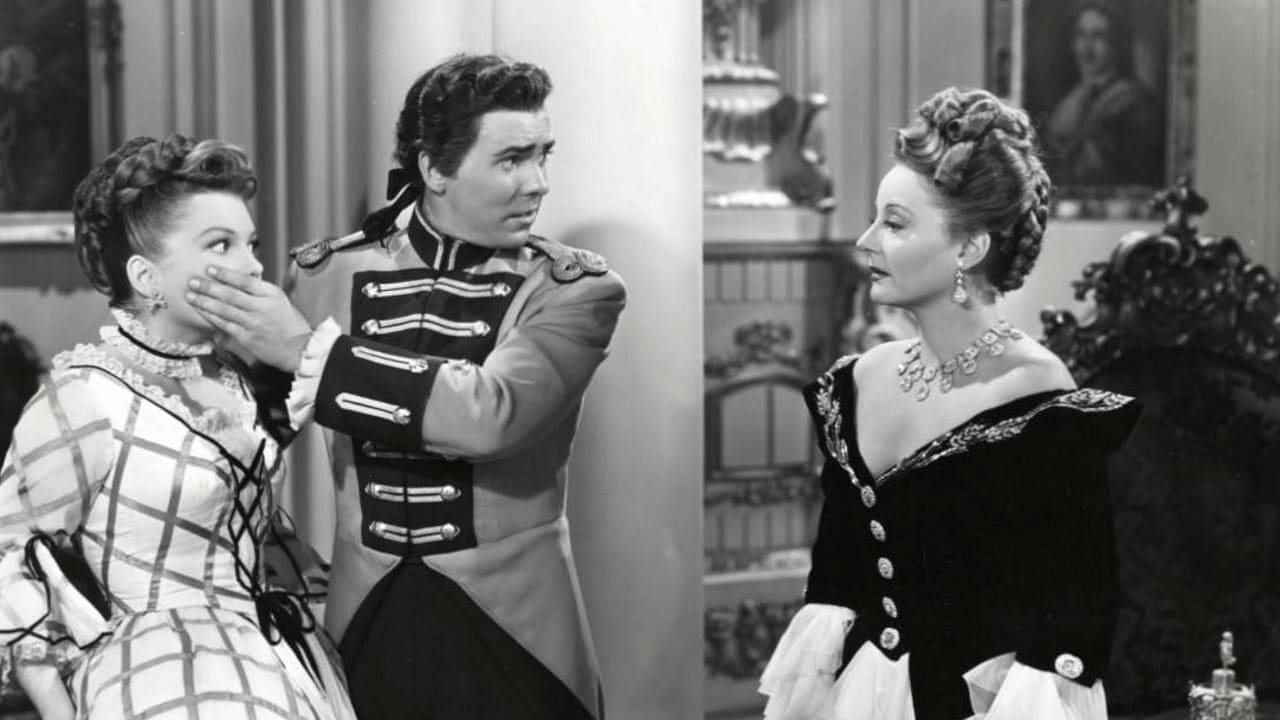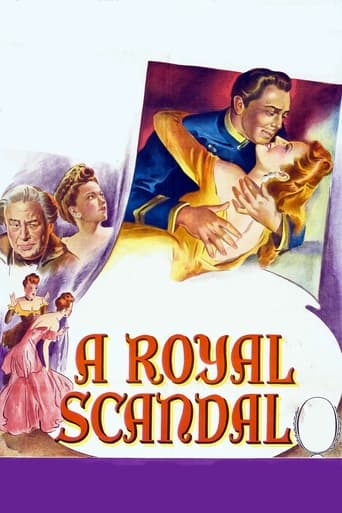

Tallulah Bankhead wasn't in many movies, and having only seen her in Lifeboat, I thought I should see her in something else, so I tracked down this. I'm quite pleased I did.Filmed very much as the stage play it originally was, this movie is quite funny, as quick-witted and slow-witted characters face off. Bankhead makes a wonderfully larger-than-life queen and Coburn is excellent as a sly chancellor. There's not a lot to the story, and at times I would feel a little distracted (the great difficulty of watching movies at home amidst one's other toys), but it was funny - sometimes very funny - and even though Preminger took over the direction due to Lubitch's illness, it has that Lubitch quality to it. There are better Lubitch films, but there are also worse ones, so I'd say Preminger did a good job.
... View MoreI guess that Ernst Lubitsch's fans would like this production. To me, it was nothing more than a silly farce with Tallulah Bankhead's off-the-wall performance as Catherine The Great. Naturally, she is domineering here as she constantly tells everyone to shut up.This black and white costume period piece is basically the story of a vain woman refusing to admit that she is getting older and even though she is the queen, she flirts quite well with her subjects and others.Eythe, who was so good in 1947's masterpiece, "The House on 92nd Street," is foppish here as her devoted army officer who raises to general within 10 minutes after telling Catherine that she isn't safe.Anne Baxter is briefly seen but gives her all as a lady-in-waiting, the lover of Eythe. Then there is Charles Coburn in his usual take charge position as the treasurer. A sly fox, he knows which way the wind is blowing.Vincent Price briefly appears with his French accent as a count, who charms the heart of the great queen.
... View MoreThe history of this film has been documented well,and its failure, at the time, has taken its toll on its reputation. Perhaps, it was made at the wrong time; perhaps Tallulah Bankhead was not the 'darling' of the film critics as she had been by theater critics; perhaps it was an easy target because Lubitsch had been ill and Peminger substituted - a simple target to call a film 'not of a piece'. I do have a copy of it, though, and, today, it stands as a comedy of wit, charm, and delicious mischief. Bankhead is 'mahvelous' playing it to the hilt and offering superb takes on all of her lines. Her reaction shots are among the funniest yet capture on film. No, it is not Catherine -- it is Tallulah--but this is a satirical romp and not meant to be faithful to Russian history. William Eythe, forever underrated, is perfection.A stellar comedic force (he was equally fine in more serious roles e.g. TheHouse on 92nd Street). Coburn is in the right frame of mind and action; Anne Baxter does not quite capture the spirit of the madness, but she is not bad. It is probably insane to think that 'A Royal Scandal' finally can get the credit it deserved. But it is a tasty and wonderful cinematic morsel to enjoy again and again.
... View More...but, oh, so much more. This film is, as other posts have already indicated, a buried treasure. Produced and prepared by Lubitsch, its source is the same as that of the Lubitsch-directed silent "Forbidden Paradise" (1924, starring Pola Negri, Adolphe Menjou and Rod La Rocque), considered by critic Paul Rotha to be Lubitsch's most brilliant film. "A Royal Scandal," surprisingly, has taken a critical drubbing over the years, and director Preminger professed not to like it. (It should be remembered, though, that Preminger, when interviewed, was often vague about his films.) Seems that Otto, though a great admirer of Lubitsch (and who was not?) did not feel comfortable with "the Lubitsch touch," which, he says, too often sacrificed character for easy laughs -- and, in this case, required an empress to act unlike an empress. Perhaps -- but on the other hand, on the evidence of this film, Preminger's mastery of the Lubitsch touch was thorough. The film is brilliantly paced (rapid fire and crackling dialogue throughout), superbly acted, magnificently designed and photographed, and scored very creatively by Alfred Newman. One sees the seeds for Tallulah's famous (though by now, sadly, near forgotten) offstage character in her shameless cruising of the young soldier (William Eythe) who wants no greater glory than to be close to the throne. And at this point, she is young enough to pull it off gracefully, veering just to the edge of camp without crossing the line. Eythe is a more-than-promising comedian: his two brief blinks as the empress Catherine tells him that she can see in his eyes that he is "good and true" are alone worth the price of admission. (Scenes between the two of them comprise a good half of the film.) Charles Coburn is very wisely used -- a consummate reactor, he is often seen in the background tellingly reacting to two characters' interaction in the foreground. Which is not to say that he doesn't have his own very bright moments. (Catherine's chancellor, he is the character who makes all the wheels turn.) Anne Baxter brings fire and music to her role as Eythe's fiancée, and Vincent Price brings a great deal of wit to what is little more than a cameo as the French ambassador. Mischa Auer, too, is particularly good in this film (as he is not always). For once he is not required to pull out his heavy accent and -- surprise! -- he speaks perfectly excellent English! A thoroughly entertaining film, and perhaps if its director hadn't expressed his reservations it would have a better reputation today. In my opinion, it's really stronger and more of a "Lubitsch picture" than most any of the (in my heretical opinion) somewhat overrated Ernst's later efforts, "Heaven Can Wait" and "Cluny Brown", lovely as they are, notwithstanding: this one's a gem. Just released (March 2006) on a Columbia DVD in France. Not the most perfect print, but probably better than any seen in a theater for many, many years. (The French subtitles, on the other hand, can't be turned off, which is fairly inexcusable.) By the way, I watched this movie twice within a span of 24 hours and it was even better the second time. (Since this was written, there has been released in the U.K. a double bill DVD of this with "Margin for Error," Preminger's first film, which makes it something of a bargain, though "Margin" is hardly essential.)
... View More